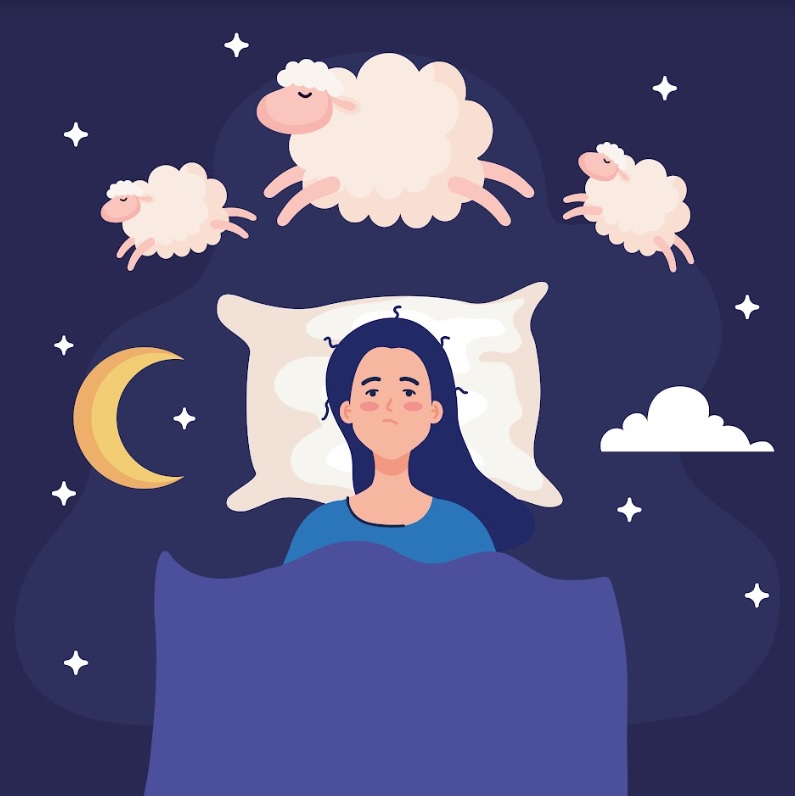Insomnia, a condition where individuals face consistent difficulty in either falling asleep or staying asleep, is alarmingly prevalent in today’s fast-paced society. With modern lifestyles characterized by perceptual screen exposure, high stress, and erratic schedules, it’s estimated that a significant portion of the global population experiences some form of sleep disturbance. While traditional treatments, such as pharmaceutical sleep aids and behavioral therapy, have been the mainstay solutions, there’s been a growing interest in exploring alternative, natural methods to address this pervasive issue.
This article examines one such alternative method: hypnotherapy. Often misunderstood and shrouded in myths, hypnotherapy presents a unique approach to aligning the subconscious mind in favor of healthier sleep patterns. Studying the intricacies of insomnia and the science behind hypnotherapy, the purpose of this article is to illuminate this natural treatment, providing insights into its efficacy, process, and benefits.
Understanding Insomnia
Insomnia is a sleep disorder characterized by persistent challenges in falling asleep, staying asleep, or waking up too early without being able to return to rest. This condition can be broadly categorized into two types: acute, which is short-term and often triggered by life events, and chronic, which lingers for at least three nights a week for three months or longer. The symptoms stretch beyond mere tiredness; they encompass mood disturbances, difficulty concentrating, and often manifest in more severe health consequences over time, such as heart disease, obesity, and diabetes. Several factors contribute to its onset, with stress, certain lifestyle habits like excessive screen time or caffeine consumption, and underlying health conditions like depression or chronic pain, leading the charge.
What is Hypnotherapy?
Hypnotherapy, an age-old therapeutic technique, involves guiding an individual into a trance-like state of heightened focus and concentration to address and alleviate specific concerns or conditions. Its roots trace back to ancient civilizations, from the sleep temples of Egypt to the healing rituals of Greece. Despite its rich history, hypnotherapy is often misunderstood, with many conflating it with the dramatic displays of stage hypnosis seen in entertainment. In reality, clinical hypnotherapy is a far cry from these performances. While stage hypnosis aims to entertain by making participants perform unusual acts, hypnotherapy is a confidential, controlled, and consensual process centered on patient well-being and positive change.
The Science Behind Hypnotherapy and Sleep
Hypnotherapy’s effect on sleep lies in the study of brain waves and their association with our states of consciousness. In the realm of hypnosis, brain activity often aligns with the theta state—a phase typically seen in deep meditation or the moments just before falling asleep. Scientific studies have shown that during hypnosis, the brain enters a uniquely relaxed yet attentive state, fostering a heightened receptivity to suggestion. This state allows the hypnotherapist to tap into the subconscious mind, which plays a major role in forming our habits, including those associated with sleep. By addressing and potentially reshaping these ingrained patterns, hypnotherapy offers a pathway to more restorative and consistent sleep cycles.
How Hypnotherapy Can Help Insomnia Sufferers
Hypnotherapy emerges as a solution for many grappling with insomnia, primarily because it targets the root causes and not just the symptoms. By guiding individuals into a profound state of relaxation, hypnotherapy serves as an antidote to the stress and anxiety that often bar the gates to restful sleep. More than just relaxation, it sinks deep into the subconscious, challenging and reprogramming negative beliefs and associations related to sleep—transforming thoughts like “I can’t sleep without medication” into “I naturally fall asleep with ease.” Through repeated sessions, not only are detrimental beliefs rectified, but positive sleep intentions and habits are also fostered, laying the groundwork for long-term improvements in sleep quality and consistency.
Steps in a Hypnotherapy Session for Insomnia

1. Initial Consultation and Goal Setting
Before embarking on the therapeutic journey, a hypnotherapist will typically conduct an initial consultation to understand the client’s sleep challenges and history. This foundational step helps in setting clear, tailored objectives for the therapy.
2. Deep Relaxation and Induction
Once the goals are established, the therapist guides the client into a deep state of relaxation. This induction phase establishes a receptive state in which the mind becomes more open to suggestions.
3. Guided Imagery and Positive Suggestion
Within this tranquil mindset, the therapist introduces guided imagery—visualizations tailored to promote restful sleep. Coupled with positive suggestions, this stage aims to reframe the subconscious beliefs about sleep.
4. Reinforcement and Future Pacing
To ensure lasting change, the therapist uses reinforcement techniques, solidifying the new positive beliefs. ‘Future pacing’ is employed, allowing clients to envision and practice their improved sleep patterns in upcoming nights.
5. Awakening and Post-Session Feedback
As the session concludes, the hypnotherapist gently awakens the client from the trance-like state. This transition is followed by a discussion, where experiences are shared, insights are offered, and feedback is gathered to guide subsequent sessions.
Benefits of Using Hypnotherapy for Insomnia
The allure of hypnotherapy as a treatment for insomnia lies in its holistic and side effect-free approach. Unlike many pharmaceutical solutions, hypnotherapy provides a natural pathway to improved sleep without the risk of dependency or adverse reactions. Beyond just promoting sleep onset, it enhances the overall quality and duration of rest, ensuring individuals wake up refreshed and rejuvenated. One notable advantage is its capacity to diminish nighttime anxiety and rumination—two common culprits behind sleep disturbances. Additionally, its versatility shines as it seamlessly integrates with other treatments, offering a comprehensive approach to sleep wellness that addresses the issue from multiple angles.
In an age where sleep disturbances are all too common, hypnotherapy offers a natural and holistic avenue for those seeking reprieve from insomnia’s grip. By tapping into the subconscious and reshaping deeply ingrained sleep patterns, this therapeutic approach provides not only immediate relief but also long-term sleep wellness. As we continue to explore and embrace alternative treatments, hypnotherapy stands out as a promising ally in the quest for restful nights and rejuvenated mornings.
